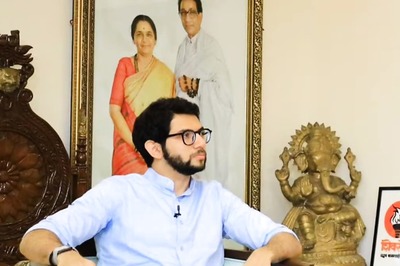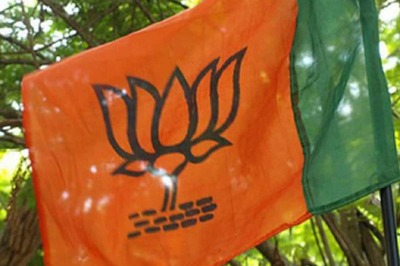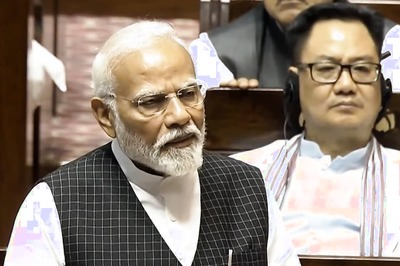
views
The key contention of the LGBTQ community is that basic civil rights like having a joint bank account, inheritance upon the demise of the partner or powers to sign basic medical forms for each other cannot be exercised unless the legal definition of marriage abandons its heterosexual assumptions.
Let’s tackle the demand of recognising marriage as a fundamental right in India and its feasibility. If marriage were to be recognised as a fundamental right, it will open a Pandora’s Box where personal laws shall be in direct conflict. This paves the way for dozens of petitions lining up before the Supreme Court.
It shall also throw challenges for the various tribal and indigenous customs prevalent which are protected under the Sixth Schedule of the Indian Constitution.
No religious, tribal, or customary law recognises same sex partnership or gay marriages. Recognition of same sex marriage as a fundamental right shall set the stage for a complete overhaul of the definition of marriage. The question is not on the morality or the righteousness of the issue but rather on whether we are legally, constitutionally, and socially prepared for this overhaul. The jury is still out on that.
During the hearings, there was another suggestion that was debated upon — whether the ambit of personal laws should be completely put aside and only the domain of ‘secular laws’ like the Special Marriages Act, 1954, should be changed or altered. The suggestion was that the definition under the Special Marriages Act should be made gender-neutral.
But even this path is a treacherous one. India, unlike most democratic countries, does not have a Uniform Civil Code. Even if the troublesome aspect of personal laws is put aside for a moment and the Special Marriages Act abandons the gendered definition of marriage, the problem is far from over.
The limited rationalisation under the Special Marriages Act shall only augment the complexities under the present system. The so called ‘civil’ or ‘secular’ law is not so secular in nature. A lot of tentacles of the secular or civil statute are entwined in the religious customs and definitions, especially pertaining to inheritance.
Marriage as an institution is not completely civil or secular in India under any circumstances due to the absence of a Uniform Civil Code and the patchy framework of personal laws. Even the limited rationalisation of laws shall require legislative intervention. Allied statutes and laws on inheritance, divorce, maintenance, and adoption shall need a complete overhaul.
The Supreme Court also orally suggested that the petitioners should consider the idea of sitting with the government in a special committee and formulating a solution or a middle path. At one point during the hearing, the court seemed to be conscious of the fact that the changes require legislative expertise and effort. While the judiciary can decide on constitutionality of the issues and suggest stop-gap arrangements or mechanisms, judiciary cannot create or amend statutes.
The suggestion that every state should be heard in this matter came from Solicitor General Tushar Mehta. The idea of a committee shall entirely shift the ball to the court of the government and Parliament to legislate on this matter. It’s open to the Supreme Court to set out broad guidelines and principles while the committee decides on the matter — if at all that route or path is taken.
To conclude, the spirit of reform must be reiterated. The LGBTQ community’s fight for equality, dignity and reform cannot be put aside in any scenario. The community must have greater civil rights and should be able to enjoy partnerships — socially and legally. The question is about how that shall be achieved.
One cannot sit in the hope that the government will take any drastic measures on the same. Across the world, it’s the judiciary through its pronouncements that has furthered the cause of the LGBTQ community. Even in India, the Supreme Court corrected its ‘historical errors’, reversing its own judgments and decriminalising homosexuality.
In the pursuit of greater civil rights, perhaps, once again, a nudge is needed from the Supreme Court. The task is far from being simplistic and is not about playing to the gallery. It a serious reformative move that must be done with fine judicial acumen and tact.


















Comments
0 comment